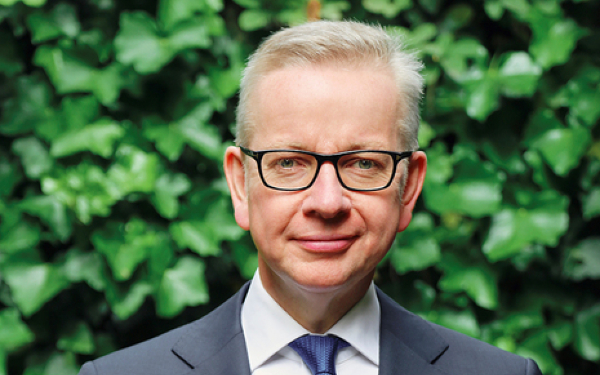
The government has handed social care an extra £500m for 2024-25 following last-ditch pleas for ministers to ease funding pressures on councils.
Levelling up secretary Michael Gove announced the top-up to the planned local government settlement for the coming financial year, in a statement to Parliament today.
The funding will top-up the existing social care grant, which authorities can spend on either children’s or adults’ services.
Historically, adult social care has received about 60% of the grant but, in his statement, Gove highlighted the pressures on children’s services in particular as a rationale for the boost.
Provisional settlement criticised as inadequate
The government had hailed its provisional settlement, announced in December 2023, as a good deal for councils, involving a rise of almost £3.9bn in authorities’ spending power, a 6.5% cash rise worth 4.7% in real terms.
However, the settlement was widely seen as inadequate by council leaders and experts, particularly because of this April’s 9.8% rise in the national living wage (NLW).
Care placement pressures
At the same time, there have been stark warnings of the pressures on children’s social care, principally due to rising looked-after children’s costs, driven by the scarcity of placements.
Councils had budgeted to increase children’s social care spend by 11% in real terms (£1.2bn), to £12.7bn in 2023-24. However, the 41 county authorities alone were predicted to overspend their children’s social care budgets by £319m this year, according a County Councils Network survey.
Government ‘recognises social care pressures’
Responding to these representations today, Gove said: “The government recognises that pressures on social care, including for children, have increased significantly.”
Of the additional £500m for the social care grant, he added: “Where possible, councils should invest in areas that help place children’s social care services on a sustainable financial footing, whilst being mindful of the level of adult social care provision. This includes investment in expanding family help and targeted early intervention, expanding kinship care, and boosting the number of foster carers.”
Gove said the finalised settlement amounted to a £4.5bn increase in English authorities’ spending power, worth 7.5% in cash terms or 5.7% in real terms.
Social care funding in England: key points
2023-24 spending
- Adult social care: councils budgeted to spend £22.3bn, up £2bn (10%) on the previous year in real terms. Since budgets were set, the government has provided authorities with an extra £395m to meet adult social care pressures.
- Children’s social care: councils budgeted to spend £12.7bn, up £1.2bn (11%) on the previous year in real terms.
2024-25 pressures
- Adult social care: the 9.8% rise in the national living wage, from £10.42 to £11.44 an hour, in April 2024 will cost adults’ services an estimated £1.6bn in 2024-25 (source: LGA). Provider fees will also need to rise to cover other costs, such as wages for staff not on the NLW and energy, while councils still face long waiting lists for assessments and reviews and will be expected to provide more care to cut delayed discharges from hospital.
- Children’s social care: placement costs for looked-after children are continuing to rise due to scarcity, a mismatch between the location of care and where it is needed and increases in the complexity of children’s needs.
Additional funding in 2024-25
- Social care grant: this will be worth just over £5bn in 2024-25, up about £1.2bn on 2023-24, and is ring-fenced for adult and children’s social care.
- Market sustainability and improvement fund: worth just over £1bn in 2024-25, up about £125m on 2023-24, this is ring-fenced for adults’ services to help reduce delayed discharges, cut waiting lists, increase provider fees and increase the capacity of the care workforce.
- Discharge fund: worth £500m in 2024-25, up £200m on 2023-24, this is ring-fenced for adults’ services spend on cutting delayed discharges.
- Council tax: all authorities may increase council tax by 3% without a referendum of local citizens, with the money raised available for all services.
- Adult social care precept: they may also increase the adult social care precept – which is ring-fenced for the service – by 2%. The government has previously estimated that the rises in council tax and the precept will collectively raise up to almost £1.2bn, up £600m on the maximum estimated for 2023-24.
Extra funding ‘welcome but not enough’
The announcement was welcomed by councils and social care leaders, though they warned it would not be enough to meet rising levels of need.
“This additional funding for social care is much needed and will be welcomed by people using and working in care and support,” said the Association of Directors of Adult Social Services’ (ADASS) joint chief executive, Cathie Williams.
“But given the well documented pressures on council finances and adult social care budgets, more still needs to be done to help people stay independent at home for longer, support unpaid carers and address workforce challenges, or we risk denying people the care and support they need to live well.”
For the Association of Directors of Children’s Services (ADCS), president John Pearce said: “The additional funding announced today is very welcome and recognition of the significant financial pressures in local government, particularly in children’s social care which undermines our ability to make a difference to children’s lives.
“A one-off cash injection, while helpful, does not negate the need for a sufficient long term funding settlement for children, councils will continue to face difficult decisions about vital services that our communities rely on without this.
Cuts predicted despite funding rise
LGA chair Shaun Davies issued a similar message, saying the association was pleased that ministers had “recognised the severe financial pressures facing councils, particularly in providing services to the most vulnerable children and adults through social care services and delivering core front-line services to communities”.
However, the LGA said that “many [councils] will need to make cuts to local services in order to plug funding gaps”, a claim also made by the CCN in its statement welcoming the funding injection.
Provider leaders and union UNISON were more critical of the news, accusing ministers of taking a short-term approach to resourcing authorities.
Short-term approach to funding criticised
“Today’s announcement of further money for councils frustratingly marks another short-term fix, which offers little guarantee to those in receipt of social care or the charities delivering support,” said Rhidian Hughes, chief executive of charitable provider umbrella body the Voluntary Organisations Disability Group.
Care England chief executive Martin Green, meanwhile, urged ministers to “must move away from short-term sticking plasters and towards strategic allocations of money that will truly benefit the sector”.
For UNISON, head of local government Mike Short said: “Under-pressure local authorities will jump at the chance of extra money, but emergency bailouts won’t magic away the massive financial shortfall councils face.”



 Family help: one local authority’s experience of the model
Family help: one local authority’s experience of the model  ‘I spent the first three months listening’: how supportive leadership can transform children’s services
‘I spent the first three months listening’: how supportive leadership can transform children’s services  How senior leaders in one authority maintain a culture of excellence
How senior leaders in one authority maintain a culture of excellence  How staff support ensures fantastic outcomes for children and families
How staff support ensures fantastic outcomes for children and families  Workforce Insights – showcasing a selection of the sector’s top recruiters
Workforce Insights – showcasing a selection of the sector’s top recruiters 

 Facebook
Facebook X
X LinkedIn
LinkedIn Instagram
Instagram
True, it is welcomed but way insufficent for it is debatable if the increased funding will be sufficient for Local Authorities, (LAs) to fund care providers to pay carers the National Living Wage, NLW, when NLW is too low to retain carers let alone encourage more to come I nto social care. £11.44 is no way sufficient as it should be in the region of £15 per hour.
But pay rates while important is only one of the areas which requires improving as others include better travel expenses for not only mileage, but also travel time, proper sick pay arrangement rather than relying on Statutary Sick Pay, better holiday entitlement including more recognition of Bank Holidays, (BH), where working BH should be at least 1.5% of pay rate but really double. These are just some. but there will be others.
We know full well that reliance on the UK workforce to cover the extensive shortages of carers will not work, so continued recruitment of non-UK carers is required and not in the short-term, but the long-term.
Social care has to be fully covered to themeet the increasing demands for care and government Ministers saying family members should do more, just shows how much these Ministers know, for families are already doing more than should be expected for in 2021 the saving to the UK was over £193billion, up from £132 billion in 2015.
This continued underfunding of social care is leading to many more health inequalities in not only those in need of care, but also the family members providing care. This in turn is increasing the demand for NHS care, which is also underfunded and again massive staff shortages. In the NHS digital has to be greatly expanded and systems used which are reliable, so not obtaining from the likes of Fujitsu and being transparent and accountable when the problems arise.
if these problems are not solved the extent of social care will continue to be insufficient, thus leading to many if not all areas of the UK not having social care to speak of and eventually this will lead to further declines in many areas of the NHS. It could be in years to come there will be no social care and NHS to speak of.
In addition climate change will also be of a great impact, so funding there can’t be ignored.
Major mistakes have been made in many areas over the years, mainly by Governments as they tend to concentrate on the short-term, if they even do that and never the long-term. Perhaps we should have experts in government rather than MPs.